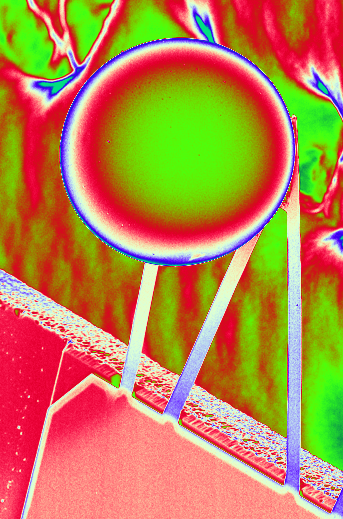Oscillation hints at new particle
 Some high-tech research has uncovered hints of an unknown quantum particle.
Some high-tech research has uncovered hints of an unknown quantum particle.
In a surprising discovery, Princeton physicists have observed an unexpected quantum behavior in an insulator made from a material called tungsten ditelluride.
This phenomenon, known as quantum oscillation, is typically observed in metals rather than insulators, and its discovery offers new insights into our understanding of the quantum world. The findings also hint at the existence of an entirely new type of quantum particle.
The discovery challenges a long-held distinction between metals and insulators, because in the established quantum theory of materials, insulators were not thought to be able to experience quantum oscillations.
“If our interpretations are correct, we are seeing a fundamentally new form of quantum matter,” says Sanfeng Wu, assistant professor of physics at Princeton University and the senior author of a recent paper in Nature detailing the new discovery.
“We are now imagining a wholly new quantum world hidden in insulators. It's possible that we simply missed identifying them over the last several decades.”
The discovery was made during an investigation of tungsten ditelluride, which was made into a two-dimensional material by using sticky tape to ‘shave’ the layers down to a single atom-thin layer.
The researchers then set about measuring the resistivity of the monolayer tungsten ditelluride under magnetic fields. To their surprise, the resistivity of the insulator, despite being quite large, began to oscillate as the magnetic field was increased, indicating the shift into a quantum state. In effect, the material - a very strong insulator - was exhibiting the most remarkable quantum property of a metal.
There are no current theories to explain this phenomenon, but the researchers have put forward a provocative hypothesis - a form of quantum matter that is neutrally charged.
“Because of very strong interactions, the electrons are organising themselves to produce this new kind of quantum matter,” Dr Wu said.
The Princeton team plans further investigation into the quantum properties of tungsten ditelluride. They are particularly interested in discovering whether their hypothesis - about the existence of a new quantum particle - is valid.








 Print
Print